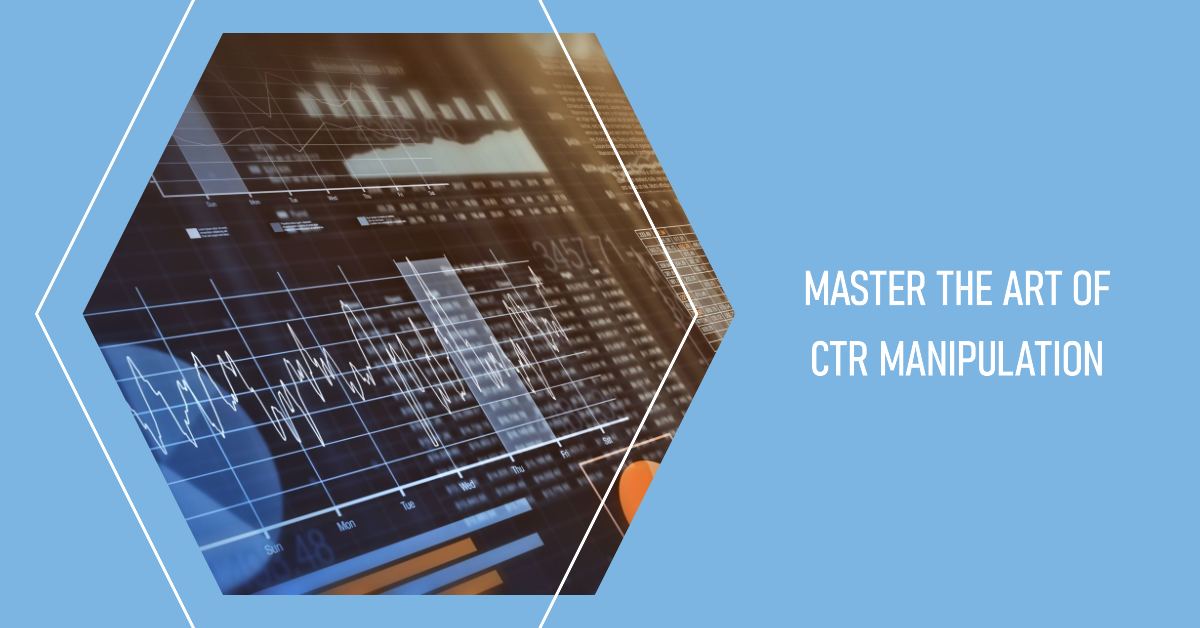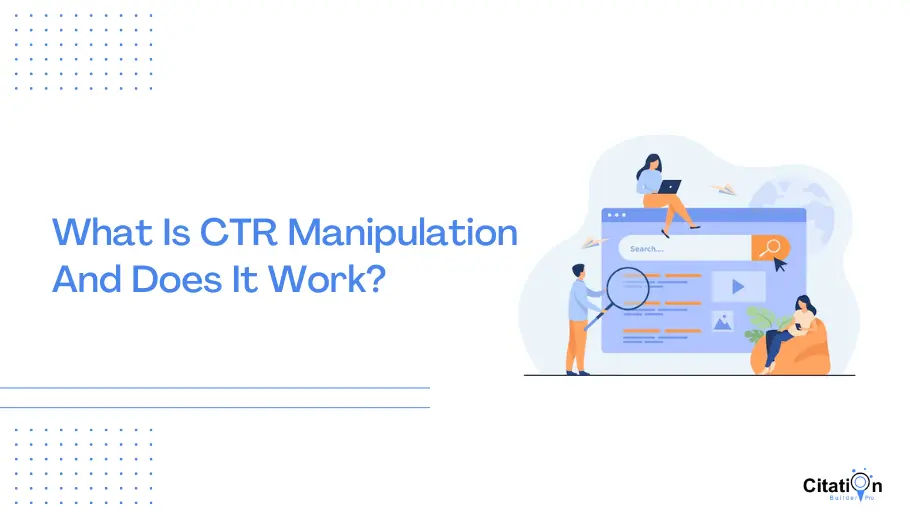Checking Out the Relationship In Between CTR Adjustment Solutions and Customer Habits
In the realm of electronic advertising, the influence of click-through rate (CTR) adjustment services on user habits continues to be a facility and fascinating topic. As on-line platforms progressively depend on CTR metrics to determine the success of content, products, and services, comprehending exactly how these controlled prices effect user involvement and decision-making processes is critical. The interaction between CTR adjustment and individual habits questions regarding credibility, reliability, and the moral ramifications of such techniques. By studying the detailed partnership between CTR manipulation services and individual actions, interesting insights arise that might improve our understanding of electronic marketing methods and their effects on consumers.
Effect of CTR Control on Actions
Examining the impact of Click-Through Price (CTR) adjustment on individual actions reveals essential insights right into the dynamics of online interaction. CTR control entails synthetically inflating the number of clicks on a particular link or advertisement to deceive customers and online search engine. This method can bring about an altered assumption of a webpage's popularity or relevance, eventually impacting user actions.

In addition, CTR control can alter the information made use of by algorithms to individualize user experiences. This can lead to users being offered content that does not align with their preferences or passions, ultimately resulting in a decline in individual satisfaction and involvement. Understanding the influence of CTR control on customer actions is essential for preserving transparency and rely on online interactions.
User Interaction With Adjusted CTR
User involvement with controlled CTR information commonly brings about manipulated assumptions of on the internet material appeal and importance. When customers engage with web content based on unnaturally inflated Click-Through Rates (CTR), they might believe that certain details, items, or services are more popular or credible than they in fact are. This can lead to customers making decisions based upon misleading data, resulting in possibly negative outcomes.
Involvement metrics like likes, shares, comments, and time invested in a web page are usually influenced by CTR adjustment. Customers might be much more inclined to involve with web content that shows up to have higher involvement prices, further bolstering the cycle of skewed assumptions. Consequently, material designers and marketers may focus on creating web content that produces high CTR as opposed to concentrating on producing genuinely beneficial and appropriate material.

Emotional Results of CTR Adjustment

Additionally, the mental effects of CTR control can also manifest in altered decision-making processes. Customers may be a lot more likely to click web content exclusively based upon its regarded popularity, instead of its actual value or significance to their needs. This behavioral change can result in a superficial interaction with on-line material, where customers may overlook high-grade however much less popular offerings for those with synthetically boosted CTRs.
Fundamentally, the psychological implications of CTR control highlight the relevance of maintaining transparency and credibility in online interactions to foster genuine customer interaction and depend on.
Ethical Considerations in CTR Manipulation
CTR manipulation increases concerns concerning deceiving customers, misshaping data analytics, and endangering the reliability of on-line web content. By synthetically inflating CTR, customers might be misdirected right into clicking on web links or advertisements they would not have actually selected or else, leading to an insincere online experience.
One more honest aspect to consider is the fairness of manipulating CTR to get an unfair advantage over competitors. Involving in such practices not just goes against concepts of justice but additionally threatens the trust that individuals put in on-line systems. It is important for services and digital marketing experts her response to maintain honest standards in their practices to make certain openness, integrity, and long-lasting sustainability in the on the internet environment.
Implications for Digital Marketing
With the enhancing dependence on digital systems for marketing objectives, the practice of manipulating click-through rates (CTR) poses substantial effects for the efficiency and stability of digital marketing methods. CTR manipulation can cause manipulated information analytics, misguiding marketers right into believing that their campaigns are carrying out much better than they really are. This can lead to misallocation of sources, with business spending in underperforming approaches based on falsified CTRs. When customers understand that CTRs have been adjusted, it can erode count on in the brand, leading to long-term unfavorable effects for customer commitment and brand name track record.
In addition, the use of CTR adjustment services can create an unjust competitive landscape, where companies that take part in such practices get an artificial benefit over those that stick to honest marketing criteria. This can suppress innovation and creativity in digital marketing, as success becomes even more concerning manipulation methods than delivering authentic value to consumers. Inevitably, the implications of CTR control for digital advertising and marketing prolong beyond short-term gains, affecting the total sustainability and reputation of advertising efforts in the digital world.
Verdict
Finally, the partnership in between CTR adjustment solutions and individual habits is complicated and diverse. The effect of CTR manipulation on actions, customer involvement with manipulated CTR, mental impacts, honest considerations, and effects for electronic advertising all play a duty in forming this relationship. Understanding these characteristics is crucial for online marketers and scientists alike in order to navigate the honest effects and make best use of the effectiveness of their digital advertising and Discover More marketing strategies.